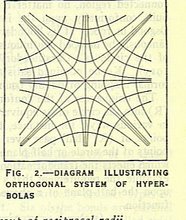As I make my way around the sundry web logs that pop up while searching the word communitarian I am constantly struck by the rancour the word seems to arouse in some sectors. I suppose to the extent that I believe that most people are in fact independent communitarians who want to preserve some measure of their independence while working towards the common good I knew that separating the terms created two solitudes, and that like all solitudes, they breed distrust and distaste of the other.
I suppose it's no accident that most of the rancour that I find comes from American blogs that keep the terms firmly divided into irreconcilable political camps. I go back to my belief that Americans hate one another so viscerally that they can barely contain their contempt for each other. It's nation so deeply divided that I can't imagine anyone ever uniting it.
As I've said in other posts, Canada was created by Sir John A MacDonald using a coalition party he called the Liberal Conservatives. Doing so created a pragmatic, non-ideological nation founded more on the reconciliation of Europe's two warring religions, Protestantism and Catholicism, than it did on the uneasy pairings of the two solitudes of French and English. That rooting in religious reconciliation is at the root of our efforts to reconcile the world's religions within our borders in the past few decades.
For those who saw Pierre Trudeau's state funeral in that magnificent cathedral in Montreal, the television commentators went to some lengths to define the former Prime Minister's faith as Catholic Personalism. Which is essentially a form of high church protestantism. Curiously, his main ally in bringing in the Charter of Rights and Freedoms was Queen Elizabeth, who inherited Henry VIII's pre-excommunication title of Defender of the Faith.
The Charter, which is essentially a charter between a representative of the Eternal Crown (Providence), and the commoners of Canada, bypasses the House of Commons, (which is essentially the will of the governing classes) and creates a new deal between individuals and their community. That deal is rooted in the same power dynamic as MacDonald used with the Liberal Conservatives, and is one I define as Independent Communitarian. We are each of us guaranteed equity in the commonwealth: we are individual before the law, and together, we form a community of customs and traditions that undergo constant renewal.
The 1100th Movement
Let's all head to the tipping point axle and hang ten.
Subscribe to:
Post Comments (Atom)


No comments:
Post a Comment